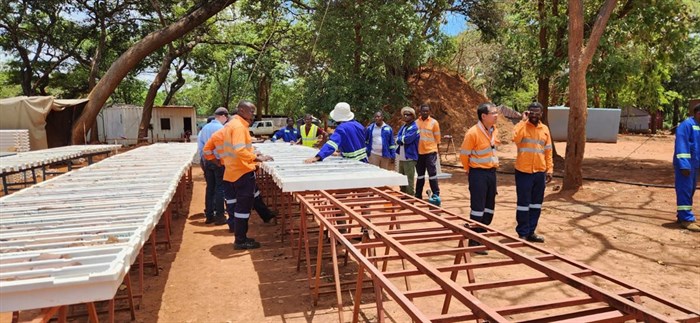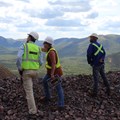#BizTrends2024: The evolution and resilience of the mining industry

According to S&P Global, the continent is home to the world’s highest grade of mid-sized gold reserves. At the same time, it also hosts more than half the planet’s platinum group metal, manganese and cobalt reserves – which are vital for certain battery storage technologies.
By the end of 2022, there was a healthy project pipeline of almost 600 projects led by gold and copper-cobalt, but also including coal, diamonds, PGMs and base metals.
The exploration spend at that time was rising at about 12% year-on-year, driven mainly by funding out of Canada followed by Australia, the United Kingdom and South Africa.
Islands of prosperity
So there is every reason to feel confident that mining is an industry with a great deal still to contribute to Africa’s economic development – even if the progress is uneven between countries and regions.
Perhaps the more important questions about mining’s prospects for the coming year relate to the foundation that we are creating for the longer term.
As mining has grown across the continent, it often creates islands of prosperity that stand out starkly from the existing socio-economic landscape.
Mines attract not only job-seekers and prospective suppliers and beneficiaries, but also informal artisanal miners; the result is a range of environmental, social and other impacts that are complex to manage.
Neither do these impacts remain only locally significant. As mineral-consuming corporates and end-users become more concerned to ensure ethical standards in procurement, so these in-country conditions attract international attention.
These issues are just one aspect of the environmental, social and governance (ESG) priorities that are now considered by mining operations – including human rights, decarbonisation and supply chain localisation.
Mining and society
As we look ahead to 2024, it is important to reflect on the progress that the sector is making in addressing these challenges.
Consider, for example, how the purely technical focus in areas such as engineering, mining and processing has evolved. The business of mining has today generally embraced a much broader understanding of how mining can support broader societal goals and better engage with the community.
This has led to the integration of disciplines relating to water, environmental and social science, which now make an essential contribution to the way that mines are planned and operated.
In this sense, mining is always being positively disrupted by advances in expertise, approach and technology – albeit usually at a gradual pace. Importantly, there have been many changes across an ever-wider spectrum of professional fields, as we bring more disciplines to bear on our central goal of responsible and efficient mining.
This ongoing development of expertise in a broader range of disciplines is also contributing to progress in solving previously intractable challenges like artisanal mining.
Pioneering standards
Mining institutions have played an important role in continuously raising the ESG bar alongside the industry’s technological advances. Standards of business practice are always being developed and reviewed in the light of global trends, and the sector’s leading companies commit to these and devote considerable resources to applying them.
In Africa’s mining sector, this is particularly important – as there are still many countries where regulatory frameworks to govern in-country mineral exploration and extraction are not yet well developed.
The importance of industry codes is that they can raise performance levels, irrespective of the capacity of the host country to legislate and police these requirements.
We have seen an example of this recently with the Global Industry Standard on Tailings Management (GISTM), where the sector worked with stakeholders to develop more stringent and far-reaching requirements.
Members of the International Council on Mining and Metals (ICMM) committed themselves to comply, and these standards will in time become the new benchmark for the whole sector.
There are few countries whose national or industry regulations are as demanding as the GISTM, which has galvanised important progress in a very short time.

Shifting priorities
Over the past five decades, the mining industry has witnessed a significant shift in its clients’ needs and priorities. This has led to an expansion of mining-related expertise, drawing on a variety of disciplines.
One notable trend in the industry was the early adoption of social science in mining. As early as 1995, firms began employing social and developmental specialists. These professionals have played a crucial role in guiding strategy and focus.
This strategic direction, which was encouraged by the industry’s pioneers, was ahead of its time, predating legal conformance requirements.
High standards are essential in mining due to the concentrated impact of the industry. Unlike sectors like construction, where negative externalities are more diffuse, mines are large operations with long lifespans. Their impacts are deep, varied, and highly visible.
In the coming year, the industry will continue to work, often behind the scenes, to find integrated solutions that contribute to resilience. True resilience will be based on cost competitiveness achieved in an external environment that demands sustainable environmental and social practices.
Importantly, the mining industry will continue to evolve, supplying minerals critical to society and transitioning towards more responsible and sustainable practices.






























